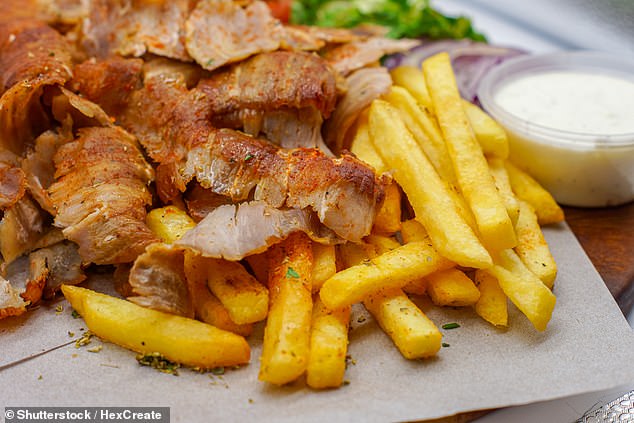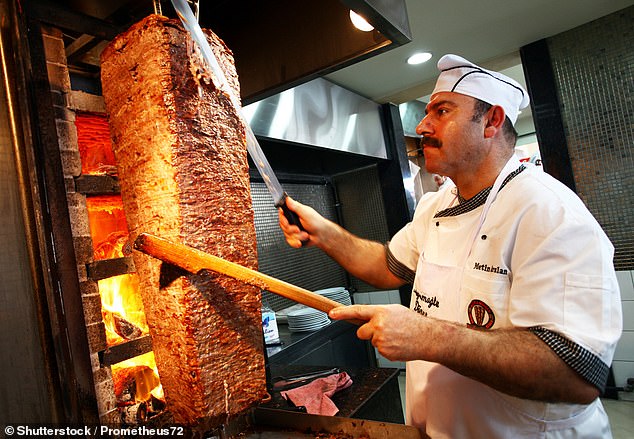A new part of history is upon us for kebab lovers as Turkey and Germany rush to claim the famous roast meat as their own.
Turkey has submitted a request for one of its best-known foods, the doner kebab, to be protected by the European Union, but Germany does not accept it, reports The times.
Turkey plans to register the name doner in Europe so that it can only be used by those who conform to the registered production method. If the nation has its way, the kebab will receive the same protection as Italian Neapolitan pizza, Spanish prosciutto and French champagne.
Although the seasoned meat has its origins in Istanbul, some argue that it has also taken its place as a national snack in Germany, where around a third of Germans consume at least one kebab per month.
Critics have called the bizarre exchange a “global food war,” while others have described it as an “assault on Germany’s cultural identity.”
Turkey has submitted a request for one of its best-known foods, the doner kebab, to be protected by the European Union (File image)
Meanwhile, Arif Keles of Berlin’s Hisar Fresh Food kebab kiosk told Stern magazine: “There is no doner in Turkey that is prepared the way we do here,” The Times wrote.
The proposal is perhaps even more peculiar in its attempt to require that all slices of meat in a döner kebab be exactly the same thickness.
Turkey has demanded that there be very specific rules about how thin slices of döner meat should be, what the meat should be composed of, and that there be a “certain standard” for its production.
If the full proposal passes the three-month process, it would mean there will be an EU standard for what can be called a doner kebab, something that restaurants and shops across Europe will have to comply with.
Only large pieces of beef and lamb ‘cut horizontally into cutlets with a thickness of 3 to 5 mm’ could be labeled as doner, while chicken cutlets can be between one and two cm thick in the poultry variety.
Doner kebab, the classic meat dish, consists of thinly sliced beef, lamb or chicken cutlets, which are spun on a stainless steel skewer over a fire, cooking the meat as it spins vertically on its axis.
Before being placed on the skewer, the meat is marinated in a mixture of yogurt, pepper, tomato puree, herbs, spices and salt.
According to local media, one of the reasons Turkey wants the EU to protect the kebab is to preserve the tradition, as the dish has evolved throughout its journey to Europe.

According to Turkey’s request, a third contender for the donor’s naming rights could be Greece (File image)
Europe’s döner economy is estimated to be worth a staggering €3.5bn (£2.9bn), according to the Association of Turkish Döner Producers in Europe.
Although they are somewhat associated with the EU’s protected designation of origin quality system, traditional specialties are not included in the geographical indications framework, which offers the highest level of protection for food products throughout Europe. Euronews reports.
This higher level of protection is granted to products that have a direct link to a geographical area, which is not the case with the traditional cooking technique for döner meat.
It is also the reason why Parma ham has been granted geographical indications, while Serrano ham has only been offered protected status.
The specialty food label has sparked previous controversy, including when Italians questioned the use of the traditional term “prosek” for a Croatian dessert wine because it sounded too similar to Italian Prosecco.
However, as far as donor Turkey is concerned, complaints could also arise from its neighbour and cultural rival, Greece.
“Greece is said to have been the first country in Europe to which the ‘döner’ was introduced during an exchange of people between Turkey and Greece in 1922. In Greece it has been called ‘gyro’,” Turkey’s application says.
A tense three-month consultation phase has now opened, during which countries will be able to challenge the request.
The request has generated divided opinions, with some praising the move as a positive step and others questioning the origin of the dish.

